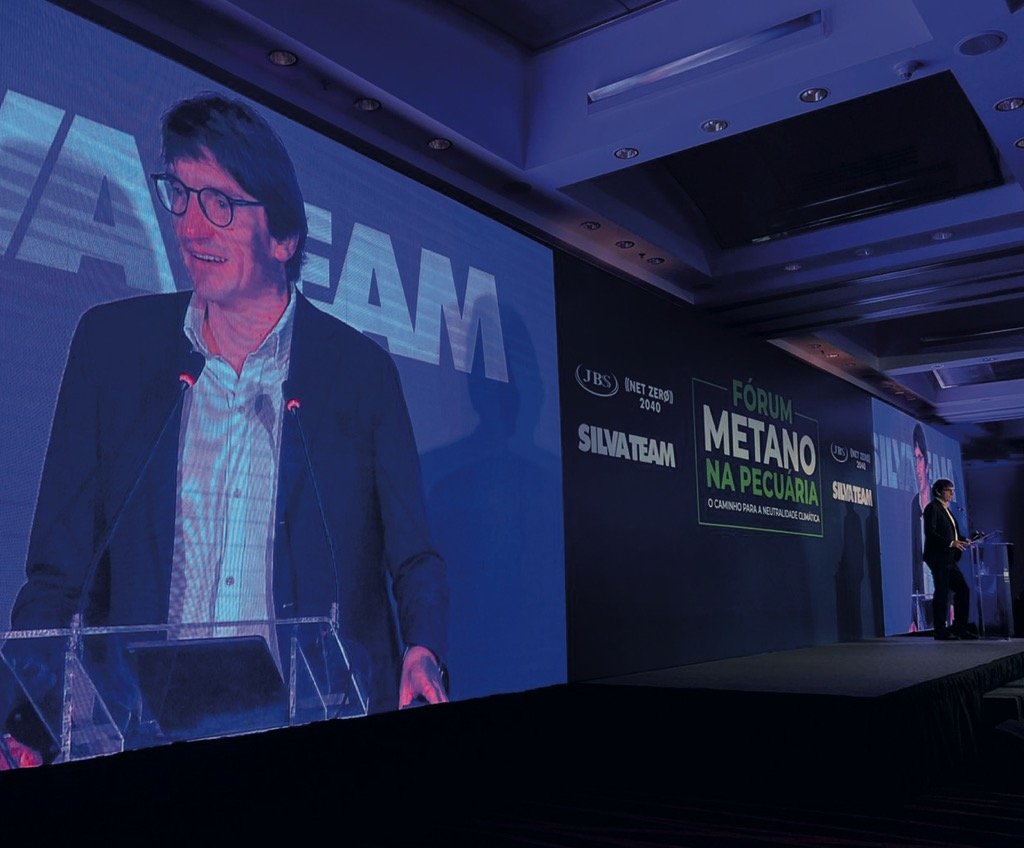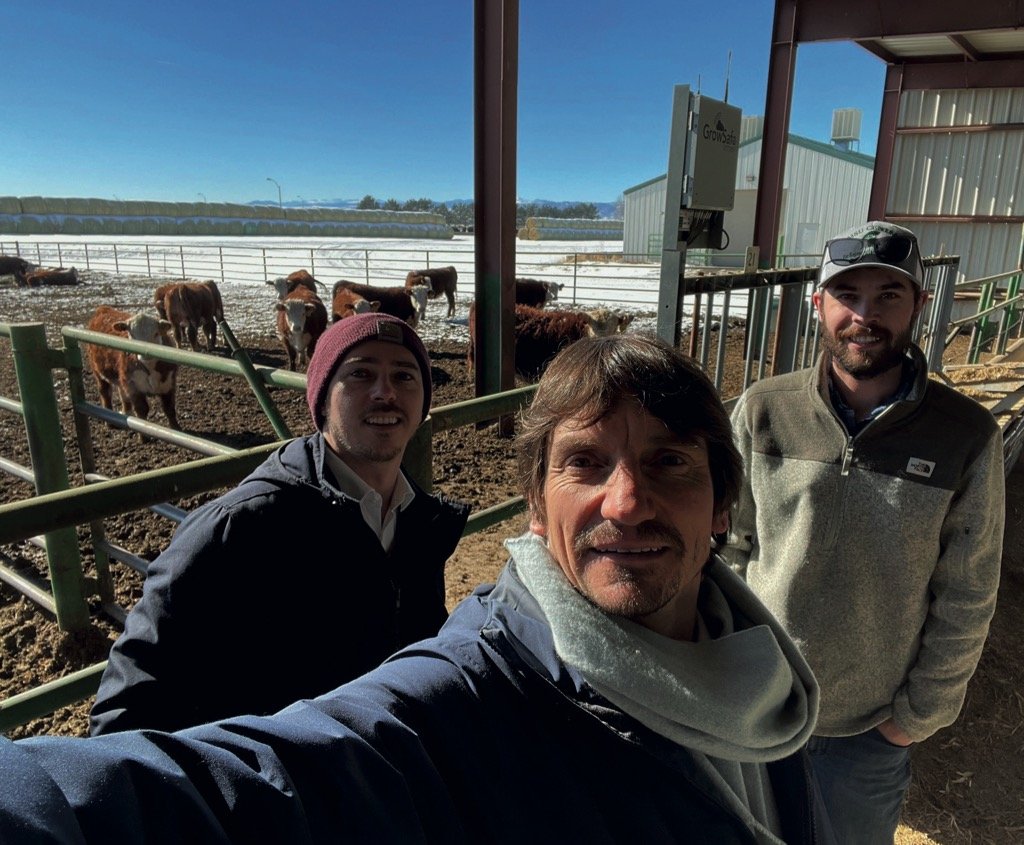Silvateam has kicked off a research project with JBS to study methane emission reduction in ruminants, while improving both productivity and animal welfare. Because sustainability entails also the ability to manufacture more, better, and more efficiently
World leader in the production of tannins and other plant-based extracts used in several industrial sectors, including the tanning field, Silvateam, for over fifteen years, has been investing in the search for cutting-edge animal nutrition solutions, promoting the transition towards natural, eco-friendly ingredients. Chestnut and quebracho tannins, saponins, polyphenols and pectins are the main natural extracts chosen to improve the livestock’s production efficiency, to effectively replace antibiotics, and to reduce the impact of climate-changing gas emissions. Michele Battaglia, vice president of the firm based in San Michele Mondovì, Cuneo province (Italy), explained the latest challenge tackled by Silvateam in the field of animal feed additives.
Michele Battaglia, what is the new project carried out by Silvateam in the animal nutrition sector?
Besides the search for new natural alternatives to antibiotics, in the last few years, we have invested resources in the development of feed additives able to migate ruminants’ greenhouse-effect gas emissions, in terms of both methane and of nitrous oxide (N2O), whose impact is, respectively, 28 and 265 times more harmful than carbon dioxide. The use of our tannins, derived from chestnut and quebracho wood via aqueous extraction, in combination with other plant-based extracts, such as saponins, reduces ruminants’ enteric production of methane and N2O up to 30%. Said values are the result of research projects carried out internationally and vary according to the kind of product, to dosage, to the type of animal, to diet and, to usage time. We have collaborated for years with renowned universities in the USA, like UC Davis, Clemson University, Georgia University, Colorado State University, University of Florida, as well as in Italy, as in the case of the Bologna University. Among the scholars taking part, I would like to mention professor Frank Mitloehner, one of the world’s major specialists when it comes to atmospheric pollution. Recently, we have signed a five-year research agreement with the School of Zootechnics in São Paulo, Brazil, and with JBS, the world’s leading animal protein processor. The project entails the development of technologies aimed at improving manufacturing efficiency and the animals’ welfare, while lowering methane emissions in the atmosphere. The preliminary results highlighted a promising methane reduction, by adding to the ruminants’ dietary regimen Silvateam natural products. The data collected so far are very interesting, especially in the light of the fact that, currently, just in Brazil, approximately 30% of cattle uses our natural extracts. Therefore, millions of animals have already lowered their emissions, with a significantly benefical effect on climate.
As for the use of tannins and saponins in animal nutrition, what kind of effects do they generate on the human diet?
Studies highlighted that our solutions increase the quality of both meat and milk. The use of tannins enhances the quality of proteins and of animal fat, optimizing the ratio between saturated and unsaturated fatty acids. Furthermore, they increase the level of CLA, Conjugated Linoleic Acid, in milk, a beneficial factor for human health. The intensive farming system has modified the livestock’s diet, thus altering the intestinal and rumen microbiome. In the past, animals integrated their nutritional regimen with ingredients contained in leaves, berries, twigs, and seeds, naturally rich in active principles that favoured the development of a healthy microbiome and, therefore, able to promote the wellbeing of the animals and the quality of their productions. The introduction of tannins in the diet helps to guarantee the presence of those powerful natural antioxidants, necessary elements to restore the balance lost due to modern nutrition. Among the benefits entailed by this addition, we can include meat quality enhancement, greenhouse-effect emission reduction and, last but not least, animal welfare improvement. In my opinion, the latter is the most remarkable effect. To safeguard farm animals’ health and wellbeing means to protect the whole food supply chain, with positive consequences for humans as well. Animal welfare together with the elimination of antibiotics and the reduction of emissions will be the parameters on which farmers should invest to successfully meet the demands of consumers and the market.
THE EVENT: LIVESTOCK FARMING METHANE FORUM
What is the state of the art and what are the research prospects with regard to the issues concerning ruminants’ methane emissions? The topic has been addressed on May 4th and 5th, 2022, in São Paulo, Brazil, on the occasion of an event organized by Silvateam in partnership with JBS. The conference featured the attendance of renowned researchers and prominent personalities as speakers, such as the influencer Diana Rodgers, author of “Sacred Crow”, a book adapted into a movie of the same title. There were also, among others, Andrea Formigoni from the Bologna University, Frank Mitloehner from the UC Davis University, Darren Henry from the Georgia University, Spin 360 founder Federico Brugnoli, Tereza Cristina, Brazil’s Minister for Agriculture, Livestock and Food Supply, JBS CEO Gilberto Tomazoni, Michele Battaglia, vice president of Silvateam, as well as the managers of several enterprises involved in the project. As a matter of fact, there are numerous firms operating in the meat, milk and leather supply chains striving to do their share to reduce pollutant emissions in the atmosphere generated by their own businesses.
Silvateam’s commitment to improve the impact on the environment of the whole meat-related supply chain is thorough. As for the leather sector, the company is promoting the Ecotan technology (ecotanleather.com), that is, an innovative tanning process that has shaped a perfect model of bio-circular economy. The starting point is leather, a by-product of the meat industry, that is later tanned and turned into a durable product that, in turn, is used to manufacture shoes, bags, belts, and much more. At the end of their life cycle, Ecotan leathers can be recycled, returning to nature in the form a fertilizer for organic agriculture.

Michele Battaglia presso il Livestock Farming Methane forum

Michele Battaglia (in the middle) with Nicola Panciroli and Logan Thompson at Colorado State University
